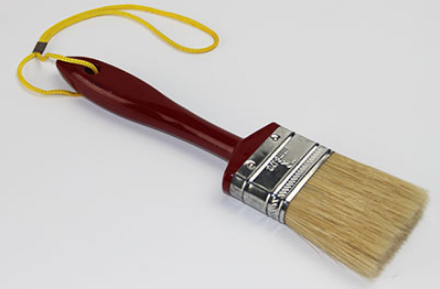A Comprehensive Guide to Different Types of Bristle Paint Brushes
Painting is not merely a task; it's an art form that requires precision, creativity, and the right tools. Among these tools, the paintbrush stands out as a crucial instrument in the hands of an artist. However, not all paintbrushes are created equal. Bristle brushes, in particular, come in various types, each offering unique qualities that cater to different painting styles and preferences. In this guide, we'll explore the diverse world of bristle paint brushes, shedding light on their characteristics, uses, and advantages.
Natural Bristle Brushes
Hog Bristle Brushes
Hog bristle brushes are among the most widely used natural bristle brushes in the world of painting. These types of brushes have a natural ability to hold and release paint, which make them ideal for fine detail work and blending. Crafted from the hairs of hogs, these brushes are characterized by their resilience, stiffness, and ability to hold a large amount of paint. They are particularly well-suited for oil and acrylic painting, thanks to their robust nature and excellent paint retention properties. Hog bristle brushes are ideal for applying thick, textured layers of paint and are favored by artists who prefer expressive brushwork.
Sable Bristle Brushes
Sable bristle brushes are prized for their exceptional softness, flexibility, and ability to maintain a fine point. Traditionally made from the fur of the sable, these brushes are highly sought after by watercolorists and artists who specialize in detailed work. Sable bristle brushes offer precise control over paint application, allowing artists to create intricate details and delicate washes with ease. While they excel in watercolor painting, sable brushes can also be used with gouache and ink.
Synthetic Bristle Brushes
Nylon Paint Brushes
Nylon Paint brushes are recommended for water-based paint, though most can also be used with oil-based paints. This type of paint brush is not recommended for applying shellac or lacquer.
Nylon brushes are a popular choice among artists due to their affordability, durability, and versatility. These synthetic brushes mimic the characteristics of natural bristles while offering greater resilience and consistency. Nylon brushes are suitable for use with various types of paint, including acrylics, watercolors, and oil-based paints. They provide smooth, even application and are easy to clean, making them an excellent option for artists of all skill levels.
Polyester Brushes
Polyester brushes are known for their stiffness and durability, making them ideal for applying thick paints and achieving bold, expressive strokes. These synthetic brushes maintain their shape and resilience over time, making them a reliable choice for artists working with heavy-body acrylics and impasto techniques. Polyester brushes are also resistant to solvents, ensuring longevity and ease of maintenance.
Specialty Bristle Brushes
Synthetic Sable Brushes
Synthetic sable brushes combine the softness of natural sable with the durability of synthetic fibers. These brushes offer excellent control and precision, making them suitable for watercolor, gouache, and acrylic painting. Synthetic sable brushes provide artists with the performance of traditional sable brushes at a more affordable price point, making them a popular choice among artists looking for quality and value.
Blended Bristle Brushes
Blended bristle brushes feature a combination of natural and synthetic fibers, offering unique performance characteristics that cater to a wide range of painting techniques. These brushes may combine the stiffness of hog bristles with the softness of synthetic fibers, providing artists with enhanced control and versatility. Blended bristle brushes are suitable for use with various types of paint and are particularly well-suited for achieving dynamic textures and effects.
Conclusion
Bristle paint brushes come in a variety of types, each offering distinct advantages and suitability for different painting styles and mediums. Whether you prefer the resilience of hog bristle brushes, the softness of sable, or the versatility of synthetic fibers, there's a bristle brush out there to meet your needs. By understanding the characteristics of different types of bristle brushes, artists can make informed decisions that enhance their creative process and elevate their artwork.
If you're in need of high-quality bristle paint brushes or expert advice on selecting the right brushes for your project, don't hesitate to contact us.


